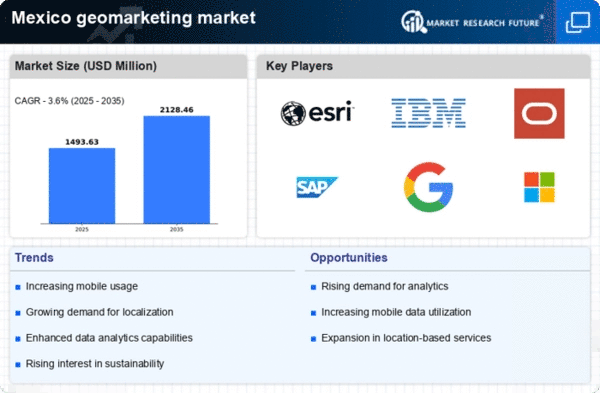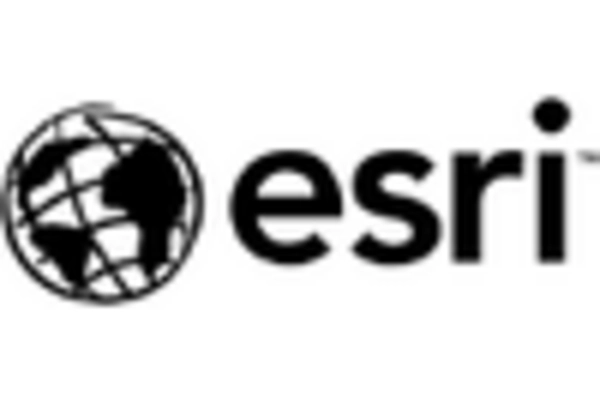Expansion of Mobile Technology
The proliferation of mobile technology is significantly influencing the geomarketing market in Mexico. With over 80% of the population owning smartphones, businesses are utilizing mobile location data to enhance their marketing strategies. This trend is reflected in the increasing use of mobile applications that provide real-time location-based services. The geomarketing market is adapting to this shift by integrating mobile analytics into their offerings, allowing companies to reach consumers more effectively. As mobile technology continues to evolve, it is expected that the geomarketing market will further capitalize on this trend to drive growth.
Growth of E-commerce Platforms
The rise of e-commerce platforms in Mexico is reshaping the geomarketing market landscape. As online shopping becomes more prevalent, businesses are utilizing geomarketing strategies to optimize their online presence and reach potential customers. Recent data indicates that e-commerce sales in Mexico have increased by 25% in the past year, prompting companies to invest in location-based marketing solutions. The geomarketing market is responding by offering tools that help businesses analyze consumer behavior and preferences, ultimately enhancing their online marketing efforts. This trend suggests a promising future for geomarketing as e-commerce continues to expand.
Emphasis on Sustainable Practices
Sustainability is becoming a focal point for businesses in the geomarketing market in Mexico. Companies are increasingly adopting sustainable practices in their marketing strategies, driven by consumer demand for environmentally friendly products and services. Recent surveys indicate that 70% of consumers prefer brands that demonstrate a commitment to sustainability. This shift is prompting the geomarketing market to develop solutions that align with these values, such as eco-friendly advertising and location-based campaigns that promote sustainable products. As sustainability continues to gain traction, it is likely to influence the direction of geomarketing strategies in the coming years.
Rising Demand for Targeted Marketing
The geomarketing market in Mexico is experiencing a notable increase in demand for targeted marketing strategies. Businesses are increasingly recognizing the value of location-based insights to tailor their marketing efforts. This trend is evidenced by a reported growth of 15% in the adoption of geomarketing tools among small and medium enterprises in the last year. Companies are leveraging geographic data to identify customer preferences and optimize their advertising spend. As a result, the geomarketing market is likely to see a surge in investments aimed at enhancing customer engagement through personalized marketing campaigns.
Increased Investment in Data Analytics
The geomarketing market in Mexico is witnessing a surge in investment in data analytics capabilities. Companies are increasingly recognizing the importance of data-driven decision-making to enhance their marketing strategies. Recent statistics show that businesses investing in data analytics have seen a 20% improvement in campaign effectiveness. This trend is likely to propel the geomarketing market forward, as firms seek to harness the power of data to gain insights into consumer behavior and preferences. The integration of advanced analytics tools is expected to become a key driver of growth in the geomarketing sector.
















